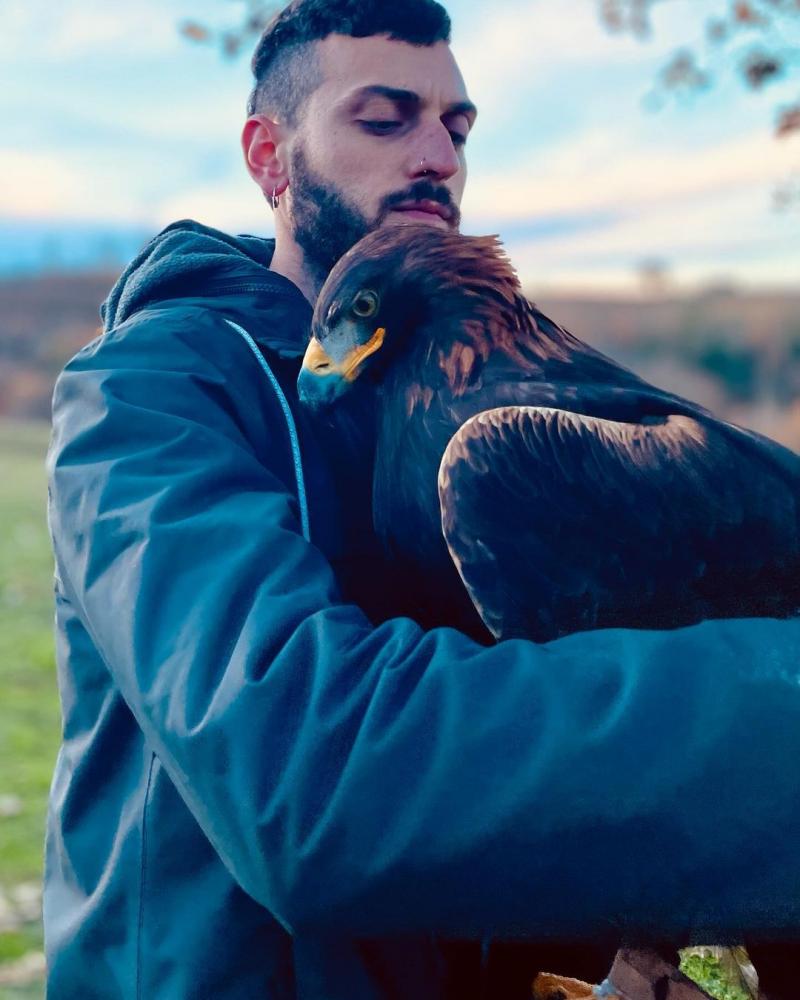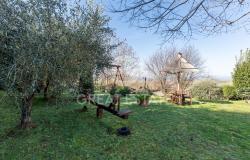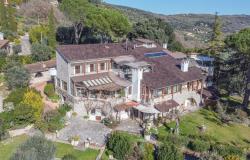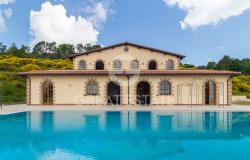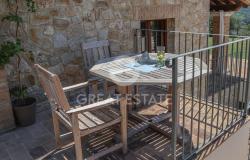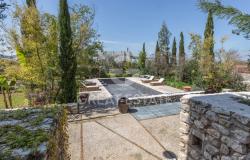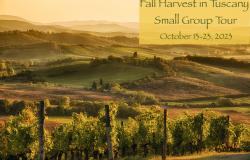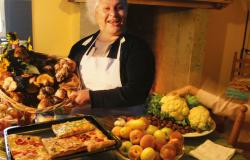According to Italian folklore, if a pigeon poops on you it portends good luck.
But for the long-suffering citizens of cities like Venice, Milan and Rome who’ve dealt with booming pigeon populations, feral birds are more than just feather-rufflers. The flocks can overtake piazzas, damage facades of important cultural landmarks, roost in eaves, muck up window sills and reproduce like winged rabbits.
In an attempt to solve the persistent “pigeon problem,” many localities have tried a variety of abatement measures, from imposing feeding bans (with fines) to spiking bird feeders with birth control to installing nesting deterrents. The results have been mixed.
Better call Leonardo Sciarra.
Working alongside his father and sister, Leonardo has created a thriving bird-of-prey operation that offers a unique solution for stemming the feathered tide. Sciarra’s Urbeveteris Falconis helps municipalities and private businesses all over central Italy remove nuisance species like pigeons through a natural dissuasion method that’s nothing short of inspirational.
Italy Magazine caught up with Leonardo at his farm in Torre San Severo — a frazione (hamlet) located near the border between Umbria and Lazio — to learn more about how he uses raptors for effective and humane bird control.
This interview has been lightly edited for length and clarity.
Leonardo Sciarra on falconry fixes for present-day problems
Toni DeBella: When did you first become interested in these magnificent birds of prey?
Leonardo Sciarra: Ever since I was a child, I have always been fascinated by the world of birds of prey. I used to spend most of my days trying to spot one and dreamed of one day being able to have a relationship with one.
TD: Was there a turning point or moment when you realized that breeding and raising birds of prey would one day be your full-time profession?
LS: I would say that the significant moment that changed everything was when I bought my first falcon (a female Lanner) when I was 18. Three years later, I hatched the eggs from my first pair of birds and it was then I knew I would realize my dream of being a professional falconer.
TD: Did you have any formal education in “birding” before you began breeding, raising and training raptorial birds?
LS: Since there are no recognized falconry schools in Italy, I did not follow any sort of official training. Instead, I began shadowing an experienced falconer named Andrea, who agreed to teach me everything he knew about these fantastic animals.
TD: It seems you’re building quite the family dynasty. How did your father and sister become involved in the business? What’s it like to work so closely with your family day in and day out?
LS: My father, Paolo, has been involved from the beginning. I have always shared many passions with him; he passed on to me his love of horses from the very beginning and later shared the falconry path with me. My sister, Maria Vittoria, has recently started helping me in the management of the farm. Working closely with them is really wonderful for me. I am happy to share every little success with them, and it’s been very important to have their support and backing throughout the journey.
TD: I’m particularly intrigued by how falcons can be used to eliminate pigeons from private and public spaces. What are the positives and negatives of using birds of prey to control pigeons?
LS: The use of falcons to deter pest birds is an increasingly popular practice in Italian culture. [One] important and positive aspect is that it’s quite effective compared to other methods. And above all, it is an ecological and natural method. The most significant downside is that the method loses its effectiveness from the moment you stop bringing the falcon to the territory infested by the “pest” species. This means this type of intervention must be repeated over time to maintain the results achieved.
TD: We talked a little bit about how you managed to rid Orvieto’s Bar Montanucci from a scourge of pigeons that moved onto their once lovely outdoor patio. Describe for us how the process works and what’s required to accomplish a “no pigeon zone.”
LS: The job we did in Orvieto was complex. We found a very serious situation in which pigeons were attacking customers eating on the outdoor terrace of the bar. It was a very long and tedious process. We began by going there frequently at lunchtime with our hawks because this was when there was the greatest influx of birds. We would return in the evening hours to scare off any pigeons that returned to roost in the area. Over the course of a few months, the pigeon population decreased significantly and people were able to eat peacefully again. At this point, returning with the falcon one day a week proved enough to maintain a pigeon-free courtyard.
TD: Where else in Italy have you successfully chased pigeons away? Have you ever considered getting in touch with local officials in Venice?
LS: We have worked in other areas of central Italy, without straying too far away specifically because we often have to go to the same place repeatedly, especially in the early stages of our work, so it would be difficult to stay away from our breeding farm for too a long period of time.
We have not contacted Venice for several reasons. The first is because in Venice pigeons are an attraction and a “heritage” for the city. The second is, again, because we’re far away and it would be impossible to do a good job there.
TD: I saw that you’re in the process of developing and expanding the farm. Can you share your vision for the future?
LS: Our breeding is growing. Every year we strive to raise the bar. We are building new training areas for young falcons called hackpens. These are large, circular aviaries where the falcons can fly to get good exercise.
TD: What would you say to someone who might be interested in working with birds of prey?
LS: I would tell them that it is a very difficult and tortuous path that requires a lot of sacrifice and a boundless love for these animals. In the end, everything is possible if you work with passion and strive to achieve.
TD: If you could wave a magic wand, where would you like to be in five-years’ time?
LS: If I had a magic wand, maybe I would use it to create a world where falconry never disappears.
Where to learn more about Leonardo
Read more about Urbeveteris Falconis here or follow Leonardo and his flock on Instagram.
